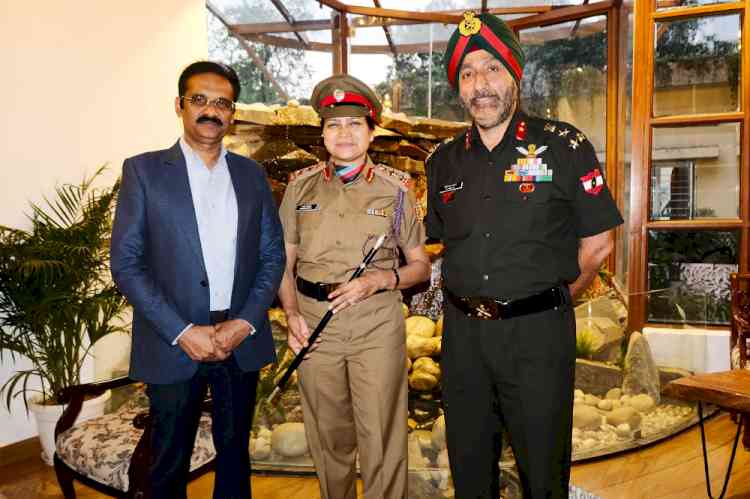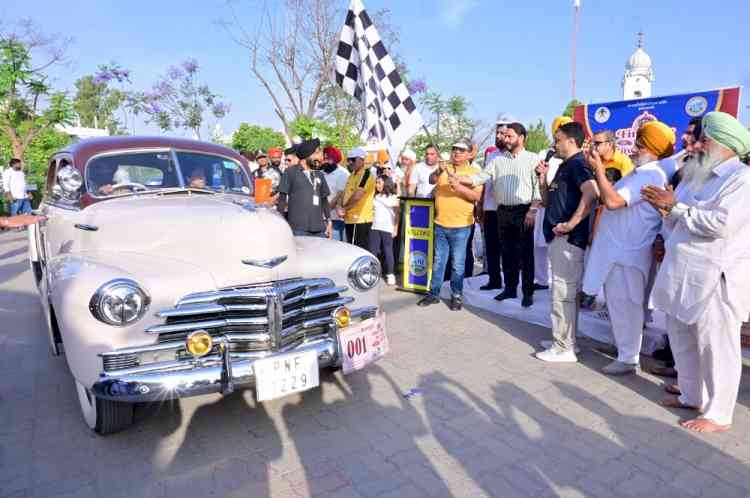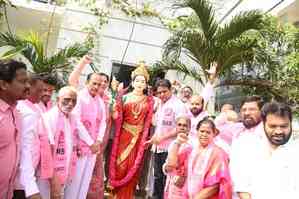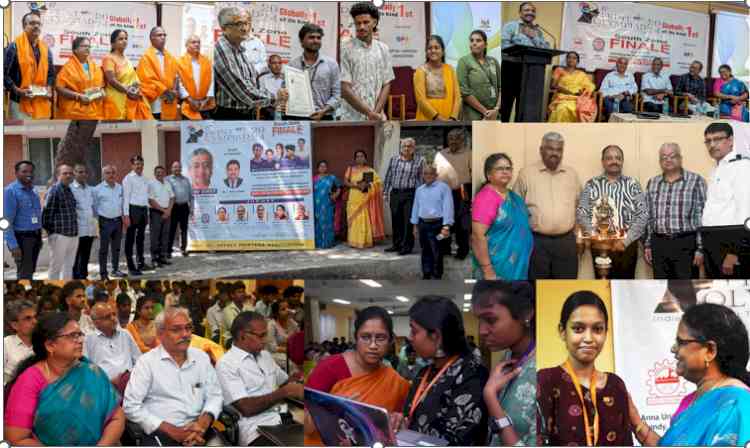VC, Rajiv Gandhi National Law University, Patiala delivers lecture on 'Indian Constitution: Critical Issues'
Author(s): City Air NewsProfessor P.S. Jaswal delivering lecture at Panjab University, Chandigarh. Photo: city air news Chandigarh, June 4, 2016: Professor P.S.Jaswal, Vice-Chancellor, Rajiv Gandhi National Law University, Patiala delivered...


Professor P.S. Jaswal delivering lecture at Panjab University, Chandigarh.
Photo: city air news
Chandigarh, June 4, 2016: Professor P.S.Jaswal, Vice-Chancellor, Rajiv Gandhi National Law University, Patiala delivered a lecture on 'Indian Constitution: Critical Issues' at the Centre for Competitive Examinations, Panjab University (PU) Chandigarh. Professor Jaswal enunciated the three terms Constitution, Constitutional Law and Constitutionalism and made a distinction between the three terms in the context of the working of the Constitution in India.
Professor Jaswal suggested that the Constitution should be viewed as a basic document of a country that sets out how the state shall be organized by determining the powers /jurisdictions of the different organs of the government as well as by establishing the fundamental law making and structural principles of a society. As such the Constitution is not only the supreme law of the land but also should be considered a living document. Constitutional law emanates from the interpretation/construction and establishment of the constitutional provisions and the procedures by the court of law, in the case of India the High Courts and the Supreme Court. In this context he referred to the progressive interpretation of the constitutional provision related to the fundamental right to life and personal liberty in part three of the Constitution by the honourable Supreme Court. Constitutionalism, according to Professor Jaswal is reflected in the rule of the law of the land. It is also reflected in the idea and the practice that the government should be functioning within the constitutional parameters. The inherent doctrines of the checks and balances and the doctrine of separation of powers in the Indian Constitution aim precisely at establishing a limited/responsible government. Professor Jaswal argued that the basic structure doctrine invoked by the Supreme Court and also its judicial review power that emanate from the Articles like 13, 32, 141 and 142 of the Constitution of India ensures that the citizens of India continue to live according to the basic principles/objectives set by the Constituent Assembly of India. Refereeing to the Maneka Gandhi case, he said that Justice P.N. Bhagwati in his landmark decision referred that the judiciary has to ensure that the law should be just, fair and reasonable. So in India the judiciary follows both procedure established by law s well as substantive due process of law.
The public lecture was well attended by a large number of the students from Panjab University who belonged to different disciplines.

 cityairnews
cityairnews 
















